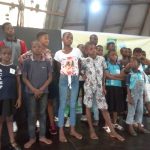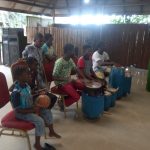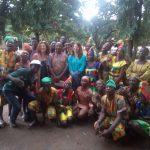Nwagbo Pat Obi reports on the maiden edition of ASSITEJ Nigeria’s festival last September.
The value of Theatre to the children and young person got strengthened through Theatre Festival organized by the Association Internationale du Theatre pour les Enfants et la Jeunesse (ASSITEJ) Nigeria
This maiden edition of the festival that took place from 27th to 29th September, 2018, organized by Mrs Pamela Udoka-ASSITEJ Nigeria recorded quality participation of theatre companies, theatre artists; both professionals and amateurs, theatre scholars, directors, producers and journalists committed to theatre for children and young persons. The festival was tagged ASSITEJ Nigeria Theatre (ANT) Festival 2018
The presence of the International President of ASSITEJ Yvette Hardie, the Global Vice-President, International Association of Theatre Critics (IATC), Prof Emmanuel Samu Dandaura, ITYARN Chair and EC ASSITEJ International, Prof Manon van de Water, President and Country Rep of the Nigeria Centre of the International Association of Theatre for Children and Young People (ASSITEJ); World Congress of ASSITEJ appointed African Counselor, Mrs. Pamela Udoka, Dance Scholar and renowned choreographer, University of Calabar, Dr. Arnold Udoka, Society of Nigerian Theatre Artists (SONTA), President Drumboat Theatre Foundation, Calabar, Dr. Yta EdisuaMerab represented by Dr. Chinyere Okam, Department of Theatre and Carnival Studies, University of Calabar, Calabar; University lecturers, Students from the department of Theatre Arts from University of Lagos and Lagos State University, Makinde Adeniran, Chairman, National Association Nigerian Theatre Arts Practitioners (NANTAP), Lagos Chapter; and the members of many known theatre companies like Segun Adefila-led Crown Troupe of Africa, Dayo Liadi-led Ijodee Dance Company among others made the festival outstanding.





